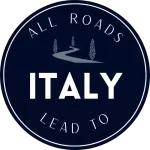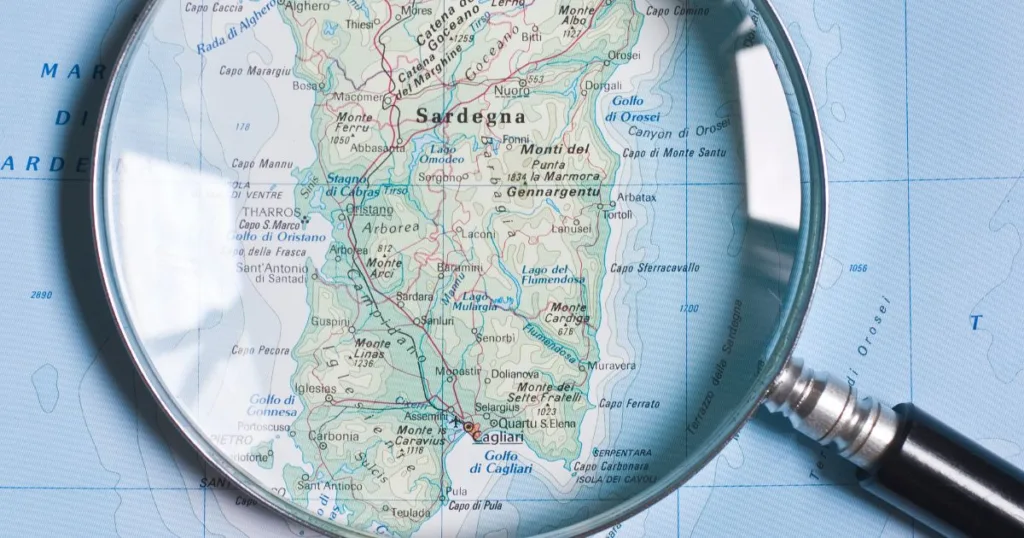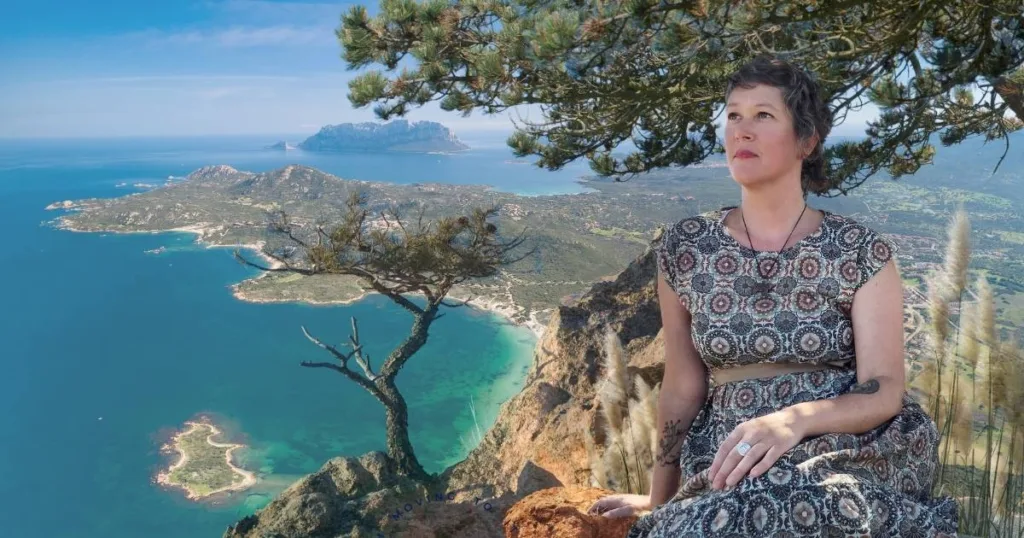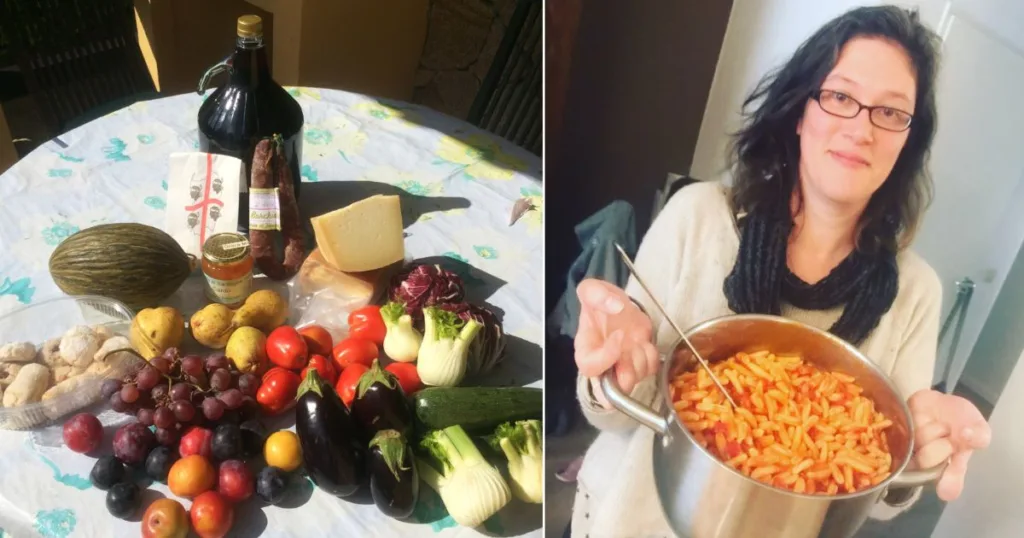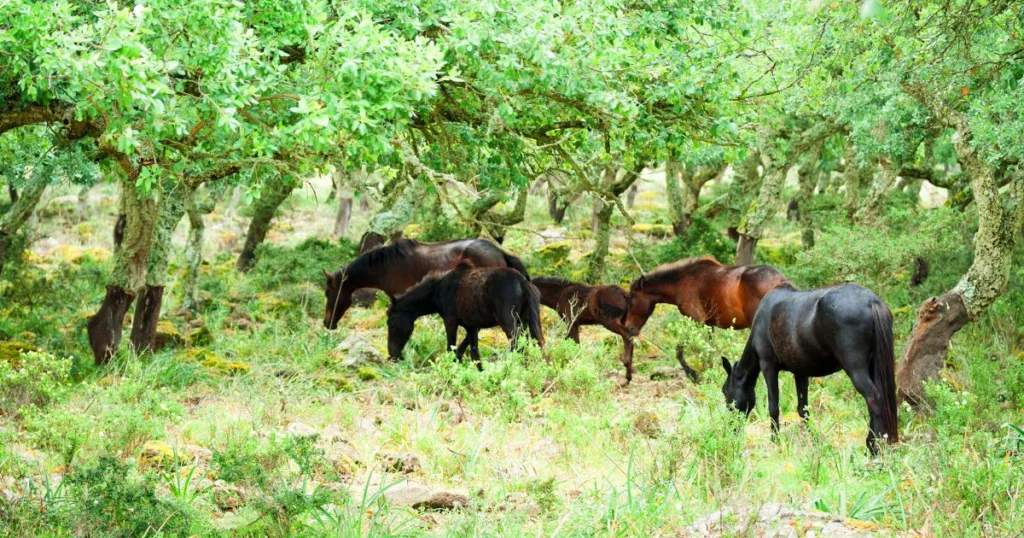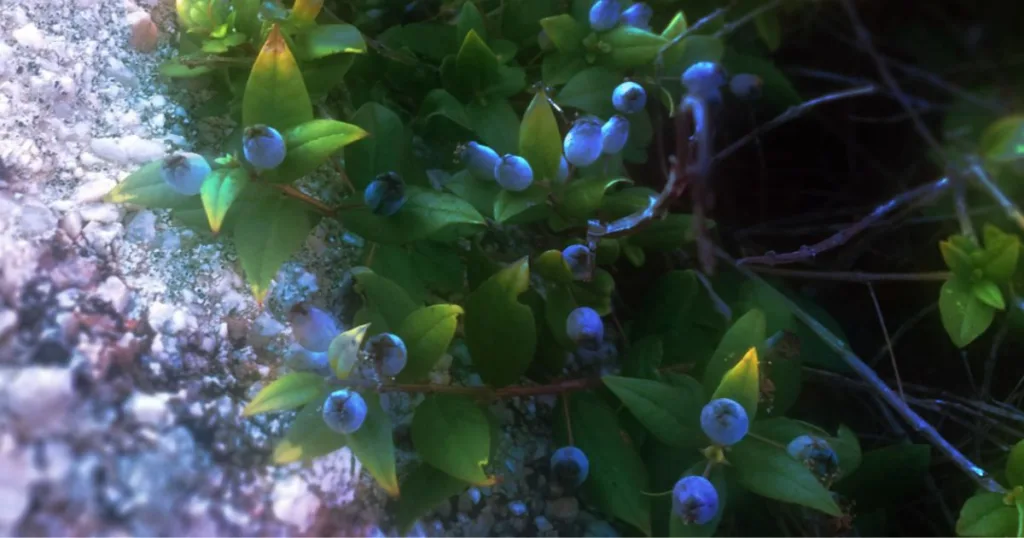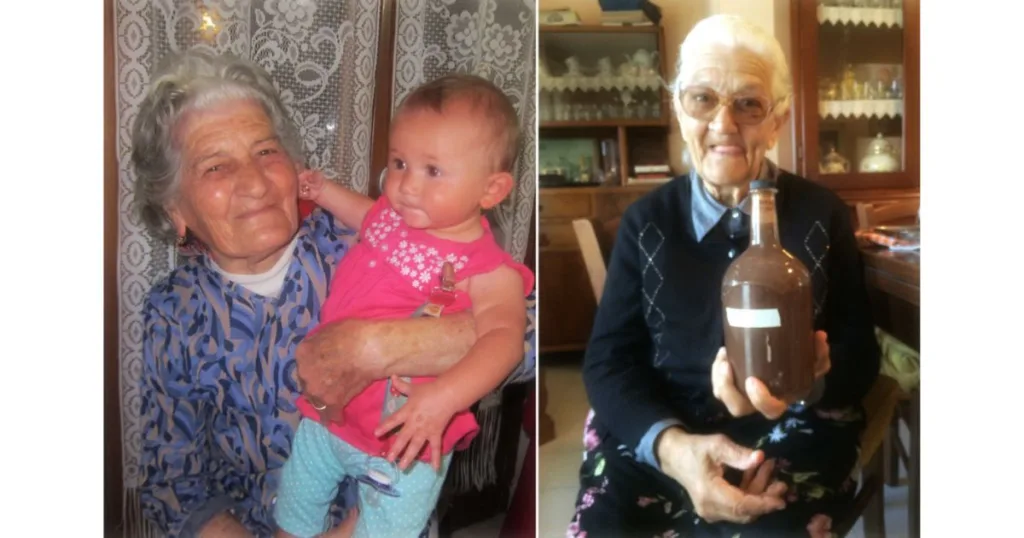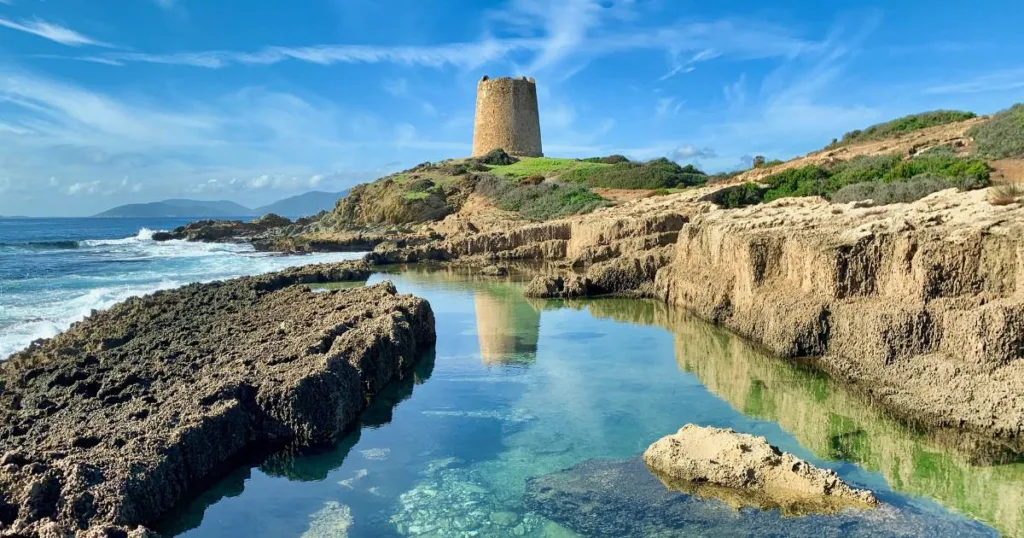
The Sardinia Blue Zone: "How I Moved My Family To This Mediterranean Island"
Can I Move To Sardinia? What Is Life Like In Sardinia? What Is The Sardinia Life Expectancy? This Article Will Answer Those Questions And Many More - Plus An Interview With Jenn Campus Author And Herbalist Who Moved To Sardinia With Her Family Of Four

- Nathan Heinrich
- Sardinia, Italy
The famous Sardinia Blue Zone has been in the news a lot lately. With one of the highest populations of people over the age of 100 and the greatest number of men over the age of 100 in the world, Sardinia was the first Blue Zone to be identified on our planet.
Many of us have read the book by Dan Buettner on the topic The Blue Zones: 9 Lessons for Living Longer from the People Who Live the Longest.
Recently, journalist and producer Dan Buettner also made an award-winning documentary, based on the research of Gianni Pes and Michel Poulain, called ‘Live To 100 Secrets Of The Blue Zones’ for Netflix, which I highly recommend.
By the way, “Sardinia” is the English version of the island’s name – the local Italian spelling is “Sardegna”.
Should I Move To Sardinia?
It’s one thing to follow the example of the Sardinian people to lead healthier lives.
But what about actually moving to Sardinia? And even if you wanted to, you might ask, “How do I move to Sardinia?”.
Rather than telling you one way or another, I’m going to let someone who moved to Sardinia tell you about the experience first hand and then you’ll be better equipped to decide if the “Sardinia island life” is right for you.
Vermont To Sardinia
"My Family's Journey To The Blue Zone" - An Interview With Jenn Campus
Although I moved to the lovely Prosecco Hills of Italy several years ago, the enigmatic Island of Sardinia has always been uniquely fascinating to me.
Which is why, when I recently had the opportunity to interview a remarkable woman who moved to Sardinia, with her husband and two young children, I was thrilled.
The “I’m Moving To Italy” podcast is a place where I share my own fumbling and bumbling journey of moving to Italy.
Now in its 6th season, besides my own experiences, I have been fortunate enough to be able to interview people who have moved to each of Italy’s 20 regions.
Proudly representing the island region of Sardinia is Jenn Campus an author, herbalist, and healer.
The following are some of the highlights from our recent interview.
You can listen to the whole episode, which includes fascinating information about Sardinia from my Italian co-host Vera Sarzano, on Apple and Spotify and all podcast platforms.
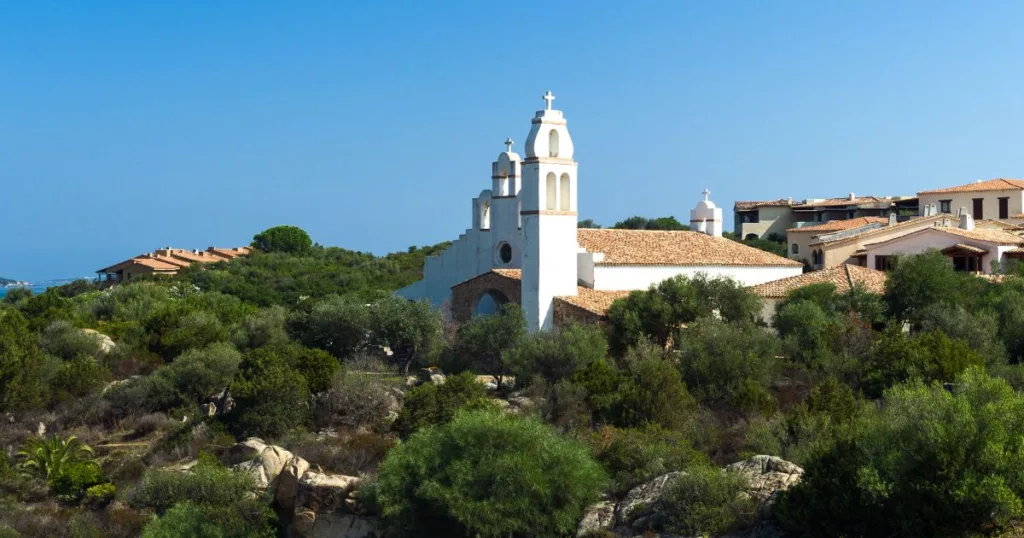
What was your life like before you moved to Sardinia?
Jenn Campus – “I grew up in the Mid-Atlantic states, living in Delaware for the first nine years of my life, and then Maryland.
I went to high school about 30 minutes outside of Washington DC And then when I went to college in Massachusetts.
Before we moved to Sardinia, my husband and I were living on a 10-acre homestead farm in Vermont.
The story my husband always likes to tell people is that I was always looking for a way to escape the United States because it’s a place that I’ve never really felt a deep land connection to.”
Did being an adopted child shape your sense of home?
Nathan Heinrich – “Do you think that being an adopted child had anything to do with the fact that you have a different approach to a sense of place and home?”
Jenn Campus – “Yeah, I think so.
I mean, I definitely know it did.
So it’s kind of always been like my curse and my gift, this feeling of not belonging.
And I know that is something that I’m here to experience so I can help other people find connections where it might be difficult.
Being adopted really gives you a completely different perspective on life, on belonging – on ‘place’.
However, being abandoned as a baby also has its gifts.
I think that it makes it easier to leave and go make a new home somewhere else, even if it’s, you know, far away – a different country, a different continent, an island.”
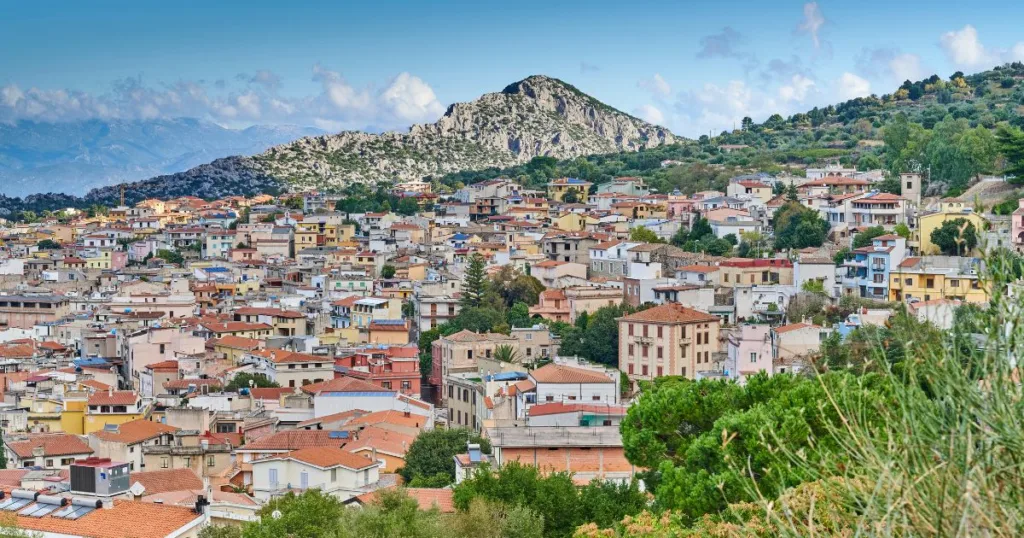
A farm in Vermont sounds lovely. Why leave it?
Jenn Campus – “The Vermont years were really special because we had huge gardens and we took care of animals there.
We had sheep and goats and chickens, and both of my kids were born there.
We had some good years there.
But I think it was when we started having these children that we both were kind of like, ‘What are we doing in the middle of Vermont?’
Neither of us has ties to Vermont.
Also, I must say, that my husband, Roberto, is Sardinian.
He was born here, but he left the island at the age of five with his parents to move to Rome, they went to Rome for work.
After Rome, he spent 20 years in the US and became a citizen.
So we asked ourselves, ‘What do we really want for this family?’
‘And what do we want for these children especially?’
I think there’s a part of him that always regretted not being able to grow up here in Sardinia.
And he kind of always wanted to go back.
And me as an American without, you know, solid roots in any one place, both of us always had this feeling of not belonging anywhere.
"Please bring my children home"
On my first visit to Sardinia, I remember the last night we were there, we were looking at the sunset in Alghero, which is one of the places that we stayed.
And I got this really clear message from the island, who I call ‘Nona Sardinia’ because she has a very grandmotherly spirit to me.
And she said to me.
‘Please bring my children home.”
Yes, she said, ‘Please bring my children home.”
And I was like, ‘OK.’
Really from that moment, we were trying to figure out how we were going to come to be here.”
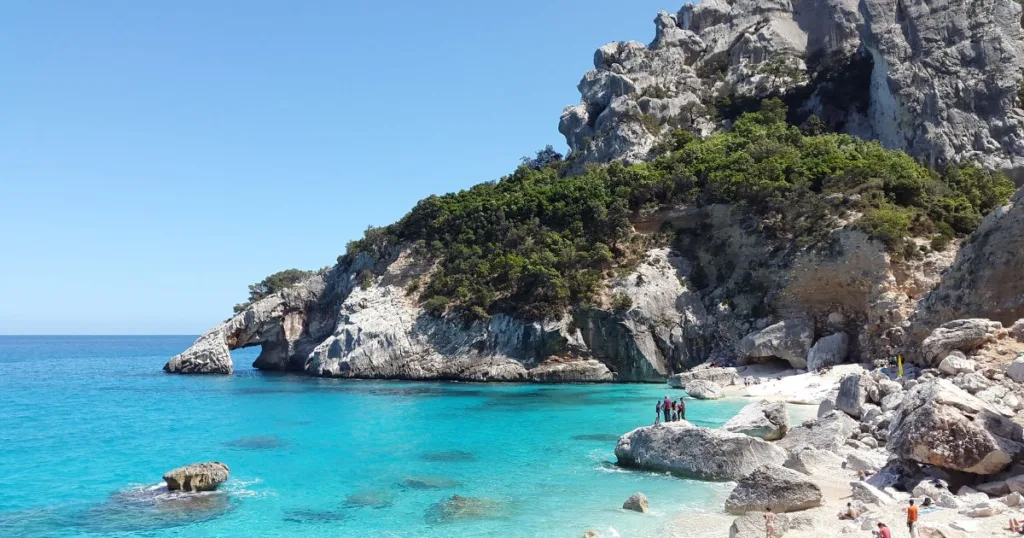
What was the tipping point that made you decide to move?
Jenn Campus – “A lot of things happened in our lives that just made it very obvious that we were meant to be here all the time and just leave that life behind.
We ran a business for almost 10 years.
It was with food blogs.
So I started my writing online and all of this stuff as a food blogger recipe developer and cookbook author, and we had this network of over 10,000 other food blogs.
And we were sort of helping other food bloggers get advertising with food interest companies so that they could, you know, monetize their blogs.
And it was great.
We had this business for nine years, but the market kind of changed and there was a lot of bot activity, you know, for views.
And so a lot of the companies that we are working with, you know started really pulling the reins in on how much money they were spending.
Our Business Failed
Long story short, the business ended up failing and we were trying to get investors – and we got investors.
But the things that they wanted us to do and how they wanted to pivot the business were not in line with what we wanted to do with integrity.
And so we just decided to let the business go.
So that was step number one.
Step #2, we went bankrupt and we lost our house and the homestead.
And so, you know, in the back of our minds was this constant thought – ‘We have to move to Sardinia!’
Starting Over In Sardinia
And so we just made plans to start doing that because we said if we’re going to, we’re going to live our lives poor, we want to be somewhere where we really want to be.
And at least the cost of living is cheaper in Sardinia.
We thought, ‘We can make it work.’
So, we literally sold everything we had tried to sell the house.
That didn’t work and it ended up going into foreclosure.
So, we had to sell all of our personal belongings, which was OK because we were also moving internationally and you don’t want to have a lot of stuff.
So, everything kind of worked out, even if at the moment it felt a little bit, ‘Ugh, yeah’.
So we just did it and then we got on a plane and we came to Sardinia.
"I read a blog post you wrote about food in Sardinia"
Nathan Heinrich – I’d like to read you something that you wrote, which I found very relatable and I think many Americans, especially, will be able to sympathize with.
So, you wrote this about a visit you had to Sardinia before you moved here.
The title of your article is ‘Eat Like an Italian Part One – No Guilt – How Sardinia helped me deal with my unhealthy relationship with food‘
A Food Crisis On Vacation In Sardinia
Here’s what you wrote, Jenn:
“One day during the Sardinian vacation, I sat down at a restaurant facing the glimmering Mediterranean Sea trying to figure out what to eat for lunch.
I had been to an herbalist looking for something to relieve my dust mite allergy, that was making me miserable.
The herbalist gave me a black currant tincture.
He also told me to stay away from shellfish, and when my gluten allergy came up, he suggested I might want to stay away from dairy as well.
Because those two allergies can sometimes be linked.
I almost had a meltdown at the table reading the menu.
There was this beautiful food on it that I couldn’t eat, all the gluten-laden pasta, pizza, and bread.
But then there were all the amazing cheeses and of course, being on the sea, tons and tons of shellfish – my favorite.
At that moment, it became too much.
I wanted to cry.
I wanted to scream in frustration.
I wanted mussels in marinara!
My Italian family couldn’t understand my distress.
They were probably thinking ‘crazy Americana.’
I remember looking across the table at my husband Roberto and saying ‘I feel like a self-flagellating nun in the land of decadence and debauchery.’
It was a moment of truth.
My husband ordered the mussels and a glass of wine for me.
He made me eat the mussels and drink the wine.
I felt better.”
We Have Forgotten How To Eat
Nathan Heinrich – “I mean, where do I even start?
It’s just too relatable.
I see you’re laughing now.
I was laughing reading it, but I was only laughing because it’s so sad and so true all at once.
Jenn Campus – “Mm-hmm. Definitely.
Nathan Heinrich – “We Americans are completely brainwashed when it comes to food.
It’s almost like we need deprogramming, like we’ve been in a cult and we have to be deprogramed.”
I Tried Every Diet
Jenn Campus – “Totally.
Oh my God, I just think in America it’s just like this place where all anybody wants to talk about is their health problems related to food and how they’re going to fix it.
Like with some magic bullet like this diet or that diet or ‘I’m going on the Whole 30 or I’m doing Paleo or I’m doing gluten-free.’
And I did all of them myself.
I did all of them.
And it was just so interesting to me, coming to Sardinia – when I actually started living here and seeing there’s like no dietary advice or advertising.
I mean it just doesn’t exist.
And I mean, I would have conversations with people who would say,
‘Yeah, I gained some weight. So I stopped eating bread for a month and, I lost some weight.
And now I’m feeling much better.’
And what are they doing?
They’re eating the bread again.
I mean, I just felt like, ‘What planet have I been living on?’
After Living Here For 6 Months - Allergies Gone
You know, this planet of self-torture that I have put myself and my body through and my brain through thinking that, you know, I shouldn’t have all of these things and then coming here and then I started eating all of these things.
And it took me 6 months to be able to eat gluten without having a reaction to it.
But after those six months, I had no problem eating anything.
And I feel better than ever.
And the health conditions that I had in the US, I don’t have them anymore.
You know, I used to have issues with my thyroid, and I was having elevated eye pressure.
I was having all kinds of health issues.
And I went and got them checked six months after moving here, the doctors were like, ‘There’s nothing going on with you. You’re good to go.’
And it’s just incredible how many people I have heard that come to Italy, after they had problems with gluten in the US, and they can eat gluten now with no problem.
Or they come to Italy and it’s the first time they ever ate food because of the taste of everything and how fresh everything is and how delicious everything is and how you don’t feel heavy, you know, walking around after eating.
So yeah, I just couldn’t believe it.
I really just couldn’t believe it.
But it was wonderful.
It was definitely life-changing, I would say – in so many ways.”
So what are some challenges you've faced in Sardinia?
Nathan Heinrich – “Were you fluent in Italian when you moved to Sardinia? Did you speak the local Sardinian dialect?”
Jenn Campus – “No. I basically spoke no Italian.
And Sardinian is a whole different thing.”
Nathan Heinrich – “Those dialects are something else.
Italians don’t even know them from one region to the next, so we sure certainly shouldn’t feel bad about not speaking them.
Did you think that learning Italian would come quicker and easier because you had an Italian husband and you were living in Italy?”
Jenn Campus – “I was going to give myself a year because that’s how long it took me to learn Norwegian when I lived there for a year when I was a teenager.
And I was like, ‘Yeah, I love languages.’
I’ve learned some French because we lived in Brussels for a couple of years, so I expected it to come easily.
Yeah.
Dreams.
So few people understand that there are so many different levels of learning a language.
You can understand 90% of what’s being said and only be able to speak 10%, and how frustrating that is, right?
And there are levels because there are different kinds of conversations and there are different situations and scenarios like, you know?
Like with buying property, there’s real estate language and there’s going to the doctor’s office language and there’s dealing with Italian bureaucracy language.
And yeah, those are a lot harder than just your everyday average conversations.”
It's Colder Here Than You Think
Nathan Heinrich – “Beside the language barrier, what are some of the other challenges of life in Sardinia?”
Jenn Campus – “I have never been so cold in the winter.
Now, I used to live in Vermont where some weeks it was -30°F for like 2 weeks straight where I lived in Norway, OK, which everybody thinks is like like the polar north, right?
I’ve never been so cold in winter as I have in Sardinia because the houses are created for the extreme heat that happens in the summer, and they are not very well equipped to deal with winter temperatures.
So, for example, my father-in-law who lives with us, we will often see him walking down the hall in his full winter coat – and sometimes a hat.
Sometimes I also wear a hat in the house because this house, and many of them in Sardinia, which is good for people to know, doesn’t have central heat or central air.
And so you have to kind of live, or learn to live a little bit more with the elements as they are.
My husband and I are always talking about how it’s like the 1890s because we have a fireplace that is our source of heating in this entire 3-bedroom apartment situation.
So, to be prepared, don’t throw away all your sweaters your winter boots, and your super warm, cozy coats.
If you’re going to move to Sardinia, you need to keep them because it does get cold in the winter and you do feel the cold in the winter.
Modern Conveniences Can Be A Challenge
Also, people who need or expect all of the modern conveniences are going to be very disappointed in Sardinia.
Especially when it comes to like the internet, for example.
Because although there is wifi, when you’re inside a house that has, you know, 3-foot thick walls, you’re not going to get, the best coverage.
So a lot of times when people come here on vacation for example, and they rent a villa with an amazing view somewhere out in the countryside where they can see the sea and the mountains all around them, and they’re like, ‘But they said that there was internet.’
Well, there is internet.
You just really can’t always get it because you’re behind these super thick walls.
And that’s definitely been a problem for us because, you know, both my husband and I work online.
We both need the internet.
And so that is a challenge.”
What is wonderful about living in Sardinia?
Jenn Campus – “Nature. That’s got to be probably the first thing that comes to mind.
You know, it’s like when as soon as I walk out my door, there are trees and I can see a super high jagged mountain not too far in the distance.
There are vineyards that I can walk to in 5 minutes.
There are hikes that I can walk to in 5 minutes.
There are a lot of forests here, which I don’t think a lot of people understand.
Sardinia is still 50% forested and 25% of those forests are protected.
Sardinia Is A "Micro-Continent"
It’s actually a micro continent and I don’t think a lot of people know that either.
“Micro-continent” means that of all the different conditions on Earth, Sardinia has almost all of them.
There’s a desert here, there’s wetlands here, there’s mountains here.
We even have wild horses. It’s one of the last places in Europe where you can find wild horses.
We have monk seals, which are endangered.
There are only 700 left in the wild.
"The Village Life"
So it’s it is a lot of wilderness, which is something that I love, but I also really like the village life.
That’s what my husband and I call it, the ‘village life.’
It’s a place where villages still exist.
It’s getting harder and harder to find those year-round places that have everything that you need to get by and survive, where you can see families and you can see elders and everybody living together and there’s a real sense of community.
A Safe Place To Raise My Kids
As a mom of young kids, I love it here because it’s safe for them.
I know all their friends.
And you often see kids walking around by themselves because here they can still have that life.
You know, they’re out on bikes, like we were when we were kids when it was fine to be off on your own with your pack of buddies.
That still exists here, which I really, really like.
I mean that for me, that probably takes the cake above everything else because and that goes back to the whole thing about this being, you know, 3 or 5 decades behind most modern Western cultures – especially the USA.
People still care about their traditions here and they still care about community and taking care of each other.
That is invaluable for someone, like me, who has a young family and wants their kids to grow up in a place where they have roots and where they can feel like they belong to something bigger than themselves.”
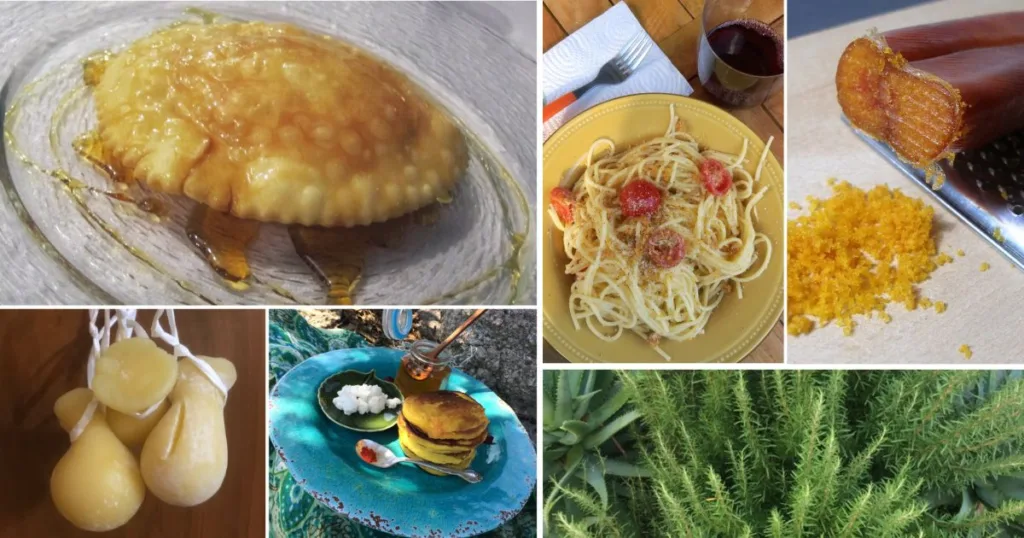
Listen to the rest of our interview and follow Jenn's life on Sardinia
Jenn and I talked for over an hour on our podcast interview you can listen to the whole conversation by clicking the links to Apple or Spotify.
You can follow Jenn on Instagram as well as sign up for her mailing list.
One of my favorite things on Jenn’s site is her Quiz on “Unlocking the key to your Ancestral Wisdom”.
She has a great book you should read as well – click here to go to Jenn’s Patreon page where you can download the first chapters of her new book and support her life in Sardinia.
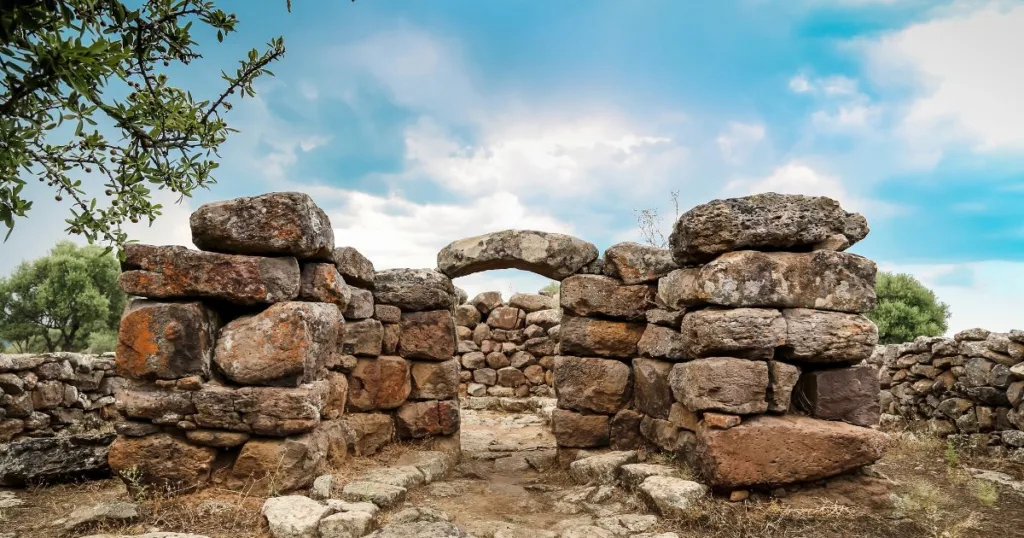
Here's a Map of Sardinia
If all this talk about Sardinia is making you curious about where it’s located, here’s a Google map for you.
Can I Move To Sardinia?
Yes, you can, but there are some requirements you will have to meet. I regularly discuss these topics on the I’m Moving To Italy – podcast.
For retirees, there’s a passive income requirement that is approximately €38,000 per year for couples and €31,000 for singles.
There are options for great investment visas and tax incentives for anyone moving to Southern Italy, which includes Sardinia.
I highly recommend my friend and local Italian tax expert Paolo Rigo from Studio Rigo for all your questions about moving your business, money, and family to Italy.
Here’s the link to a questionnaire Paolo has put together for the non-resident tax resident to assess your preparedness to move to Italy.
Paolo has been on my podcast several times and he has his own podcast as well, which I highly recommend.
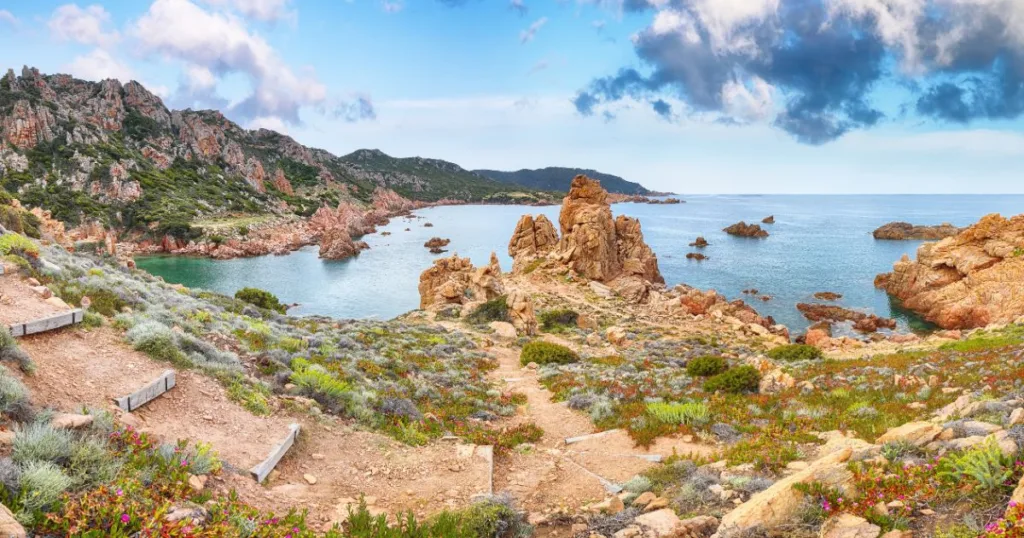
More facts about life in Sardinia
Here are some more facts about the Island of Sardinia (Sardegna in Italian).
Sardinian people eat a Mediterranean diet of goat milk cheese, beans, vegetables, and whole grains with limited amounts of meat.
Most people in Sardinia still have at least a small garden and they grow much of their own food year-round.
They also eat a surprising amount of bread and pasta along with Pecorino cheese (sheep milk cheese).
When Sardinians do eat meat, they often save it for Sunday dinner or a special occasion.
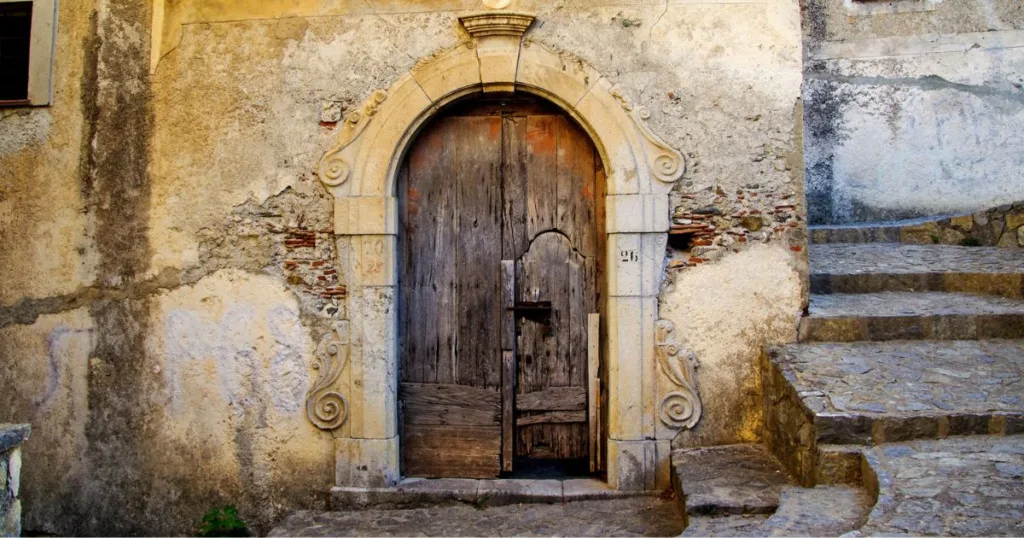
Sardinians walk a lot - especially up and down steep hills
According to Dan Buettner, one of the main reasons natives of Sardinia live so long is because,
“They are getting low-intensity and medium-intensity exercise all the time. There are dozens of periods of physical exertion throughout the day, and people aren’t driving for the most part; they’re walking.
There are still lots of traditional shepherds in Sardinia, who walk more than five miles a day.”
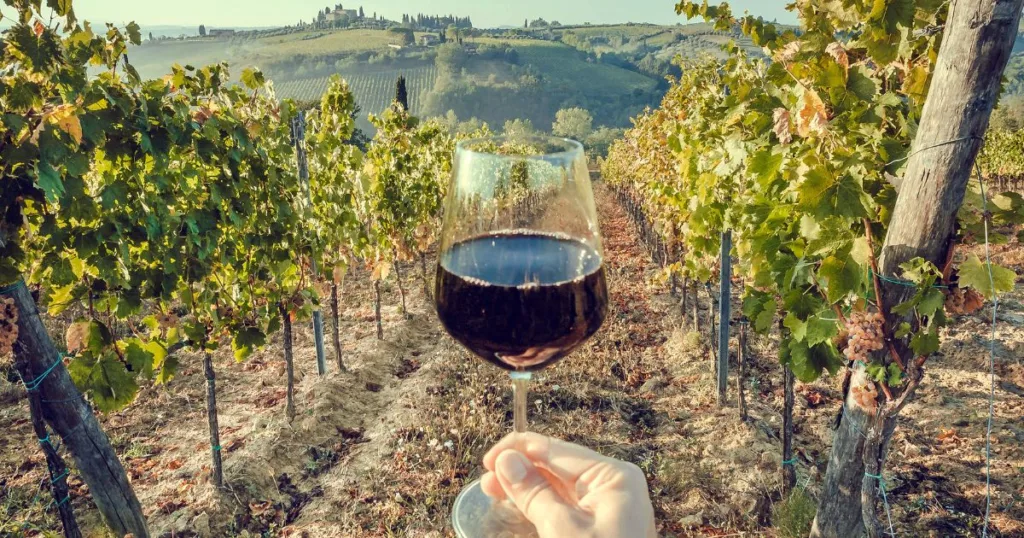
Sardinians drink wine - but not a lot
While Sardinian people do drink wine, they don’t make a habit of drinking too much.
One of the local Sardinian wines called “Cannonau” from the grenache grapes is particularly high in antioxidants and minerals.
Without even trying, Sardinians seem to have cracked the code to a healthy life.
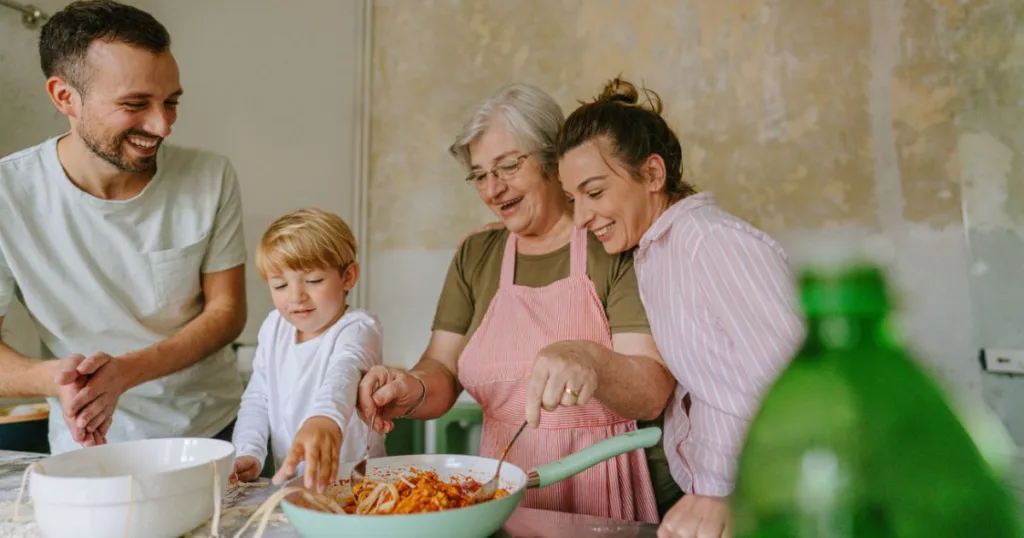
Family and Community
Besides regular moderate exercise and a healthy diet low in processed food and alcohol, Sardinian people are very family-oriented.
Their tiny communities are built on tight family units that have lived and worked the land in the same place for countless generations.
Parents and grandparents are never sent to retirement homes.
Rather, they live in their own homes cared for by relatives or they move into the homes of their children or grandchildren.
Not only is this healthier for the elderly members of the family, by extending their life expectancy by nearly a decade, but it has also been shown that children are happier and healthier when an older family member lives in the home.
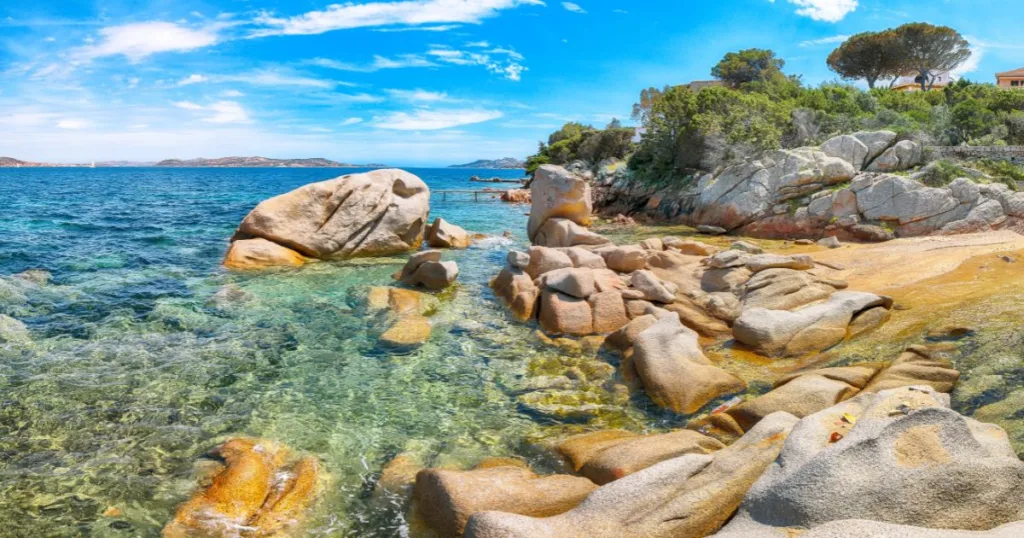
Are you ready to pack your bags and move to Sardinia?
I don’t know about you, but I’m craving a small glass of Sardinian wine and some sheep cheese right now.
While moving to the Sardinia blue zone might not be practical for most of us, my conversation with Jenn Campus and the excellent documentary by Dan Buettner has made me reevaluate my life – even though I already live in Italy.
If you’re interested in more on the island of Sardinia I wrote articles about the Pink Beaches of Sardinia and the Best Resorts on Sardinia.
Happy reading and be sure to sign up for my newsletter to get my latest articles about life in Italy emailed to you each month.
As Italians say when they’re toasting with a glass of wine “Salute”, which means, “To your Health!”

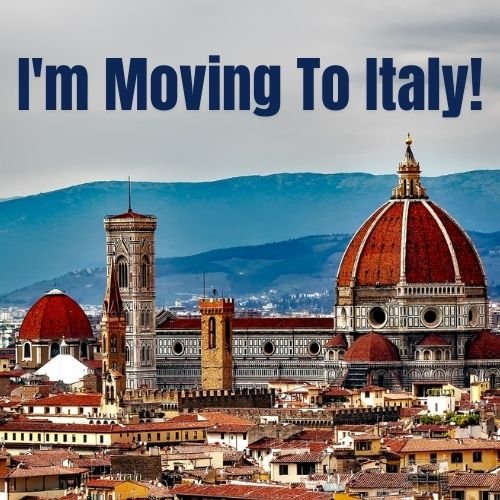
Dreaming of Moving to Italy?🇮🇹 - Get this FREE podcast & be INSPIRED by someone who moved from New York to Italy in 2020!
*By signing up for this Podcast you’ll also be joining our mailing list through which we will keep you up to date on all things Italian! We never sell your information and you can easily unsubscribe at any time.
Share This Post
Author Info:

Nathan Heinrich
Nathan is a writer, designer & horticulturist. He is the founder and Editor-in-Chief of "All Roads Lead to Italy" Magazine & host of the Top-10 Travel Podcast, "I'm Moving To Italy!". Nathan was born and raised in a 5th generation farming family in Northern California, he is currently, a dual Italian citizen, living in the Prosecco Valley of Northern Italy, near Venice.
